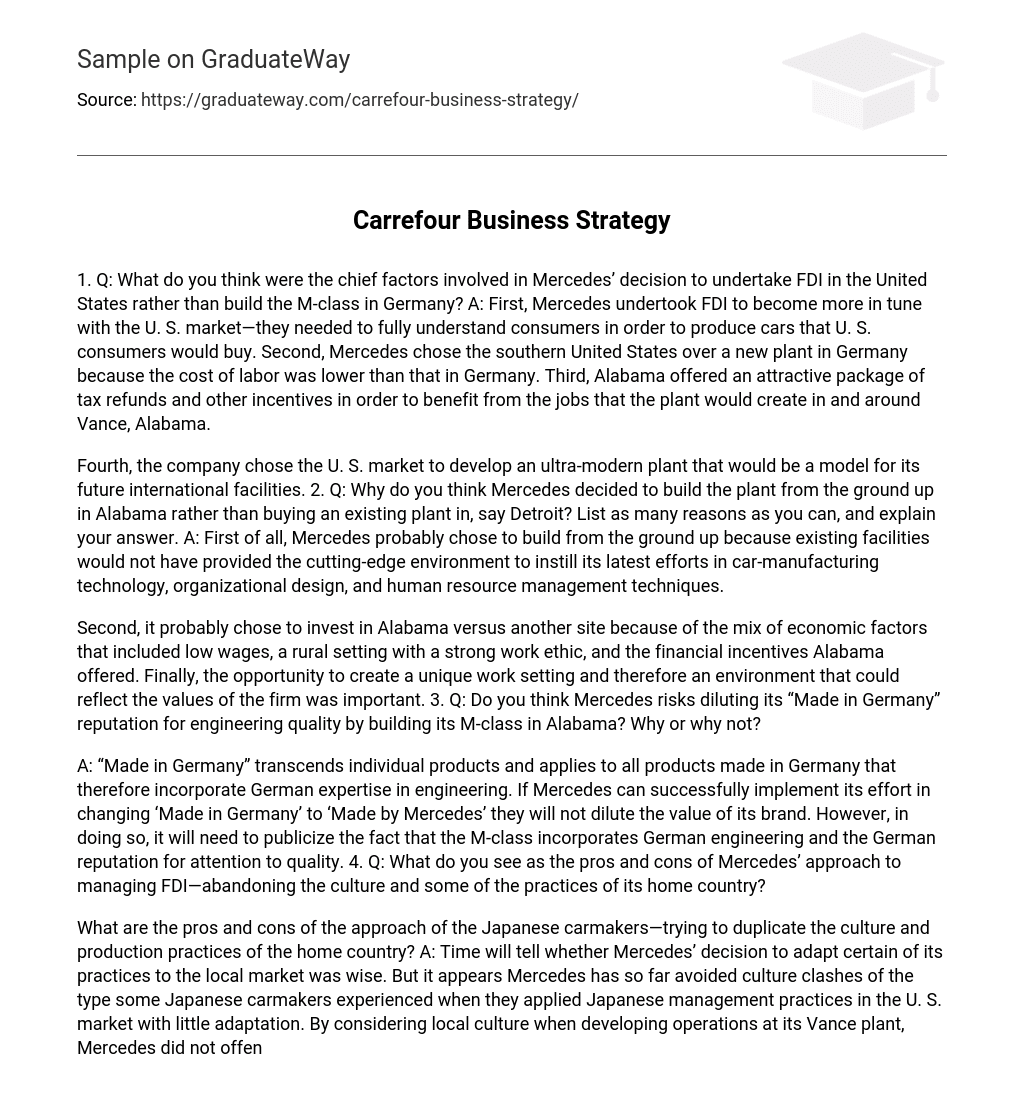1. Q: What do you think were the chief factors involved in Mercedes’ decision to undertake FDI in the United States rather than build the M-class in Germany? A: First, Mercedes undertook FDI to become more in tune with the U. S. market—they needed to fully understand consumers in order to produce cars that U. S. consumers would buy. Second, Mercedes chose the southern United States over a new plant in Germany because the cost of labor was lower than that in Germany. Third, Alabama offered an attractive package of tax refunds and other incentives in order to benefit from the jobs that the plant would create in and around Vance, Alabama.
Fourth, the company chose the U. S. market to develop an ultra-modern plant that would be a model for its future international facilities. 2. Q: Why do you think Mercedes decided to build the plant from the ground up in Alabama rather than buying an existing plant in, say Detroit? List as many reasons as you can, and explain your answer. A: First of all, Mercedes probably chose to build from the ground up because existing facilities would not have provided the cutting-edge environment to instill its latest efforts in car-manufacturing technology, organizational design, and human resource management techniques.
Second, it probably chose to invest in Alabama versus another site because of the mix of economic factors that included low wages, a rural setting with a strong work ethic, and the financial incentives Alabama offered. Finally, the opportunity to create a unique work setting and therefore an environment that could reflect the values of the firm was important. 3. Q: Do you think Mercedes risks diluting its “Made in Germany” reputation for engineering quality by building its M-class in Alabama? Why or why not?
A: “Made in Germany” transcends individual products and applies to all products made in Germany that therefore incorporate German expertise in engineering. If Mercedes can successfully implement its effort in changing ‘Made in Germany’ to ‘Made by Mercedes’ they will not dilute the value of its brand. However, in doing so, it will need to publicize the fact that the M-class incorporates German engineering and the German reputation for attention to quality. 4. Q: What do you see as the pros and cons of Mercedes’ approach to managing FDI—abandoning the culture and some of the practices of its home country?
What are the pros and cons of the approach of the Japanese carmakers—trying to duplicate the culture and production practices of the home country? A: Time will tell whether Mercedes’ decision to adapt certain of its practices to the local market was wise. But it appears Mercedes has so far avoided culture clashes of the type some Japanese carmakers experienced when they applied Japanese management practices in the U. S. market with little adaptation. By considering local culture when developing operations at its Vance plant, Mercedes did not offend the local workforce and developed good labor-management relations from the start.





